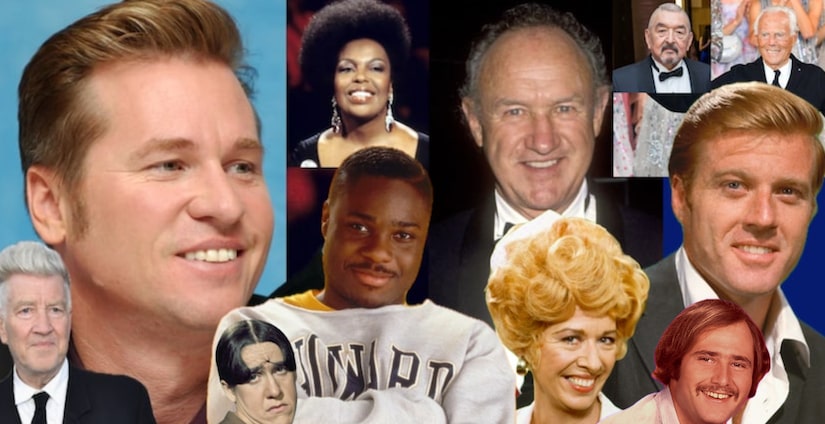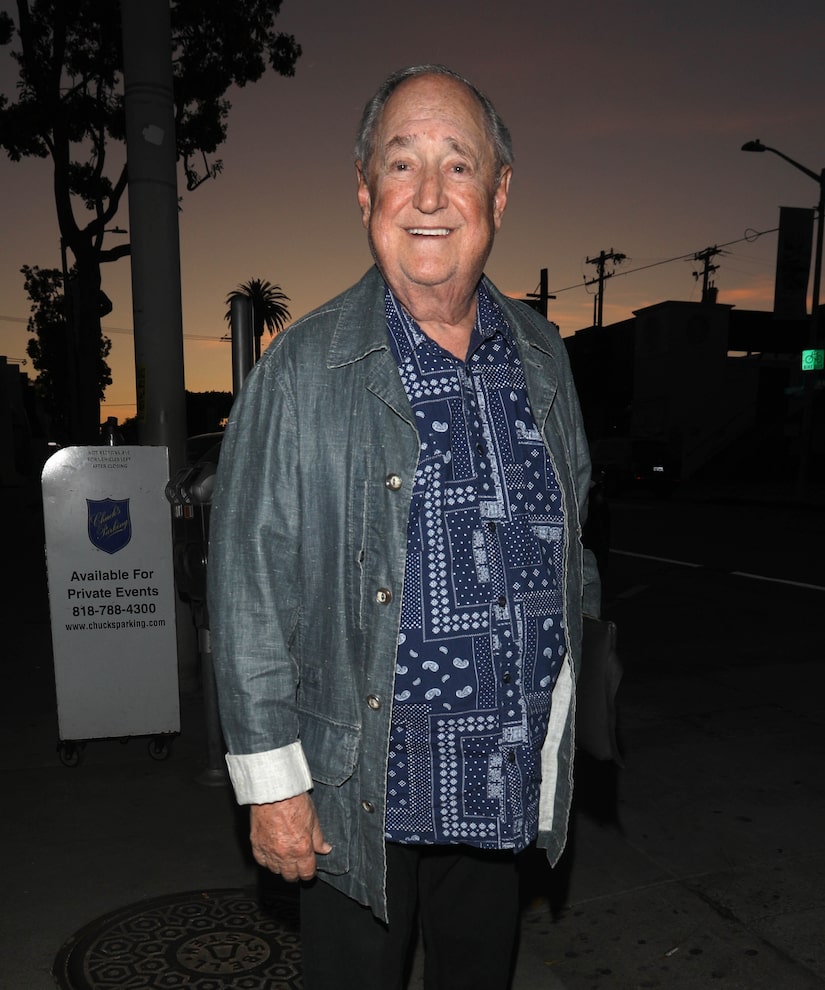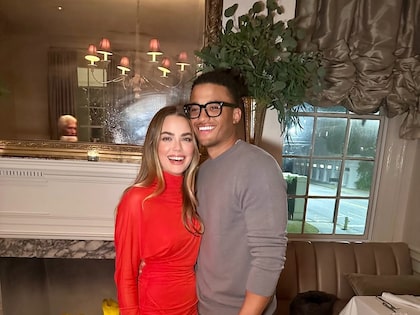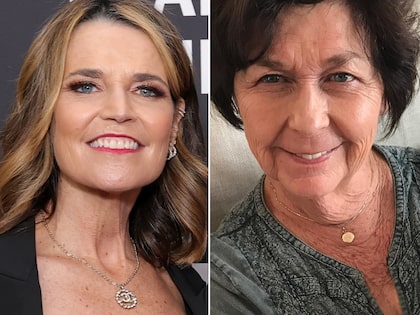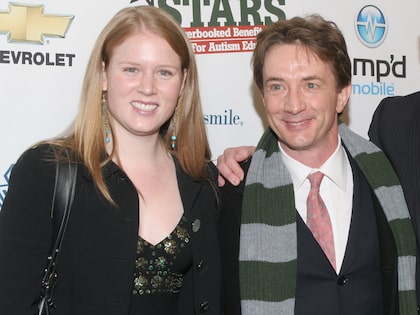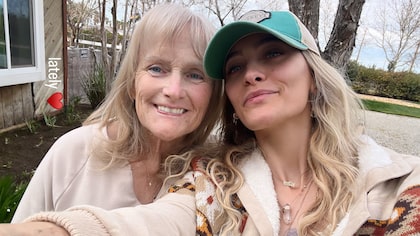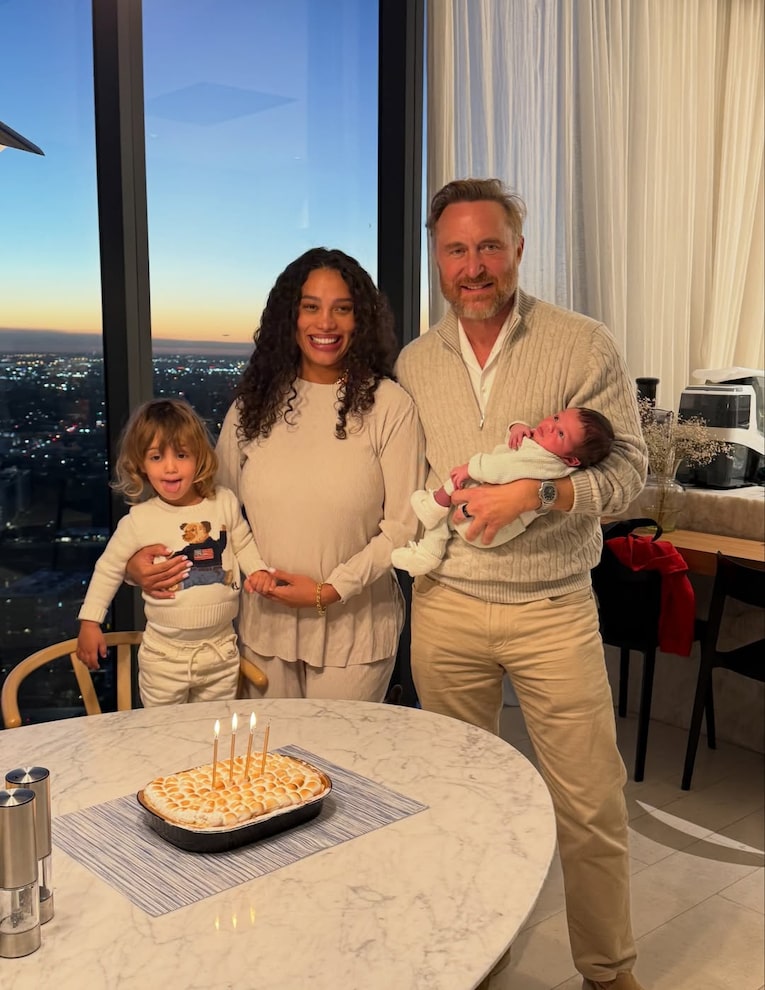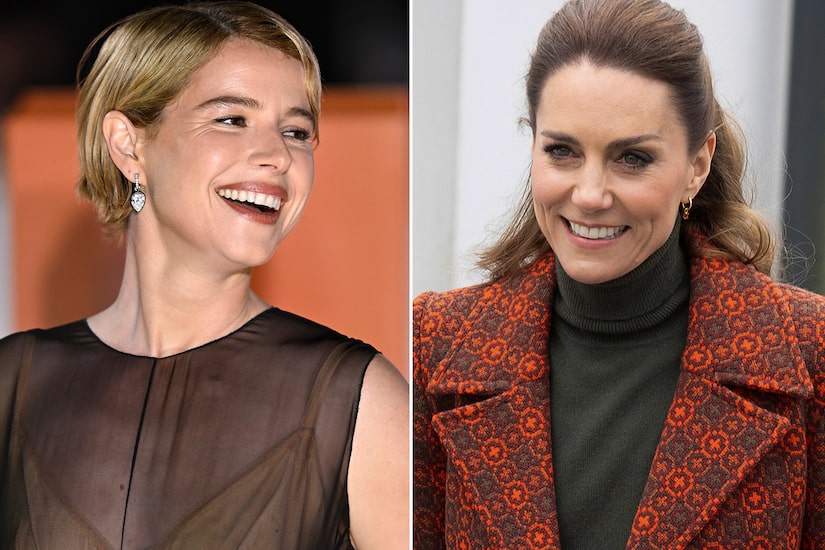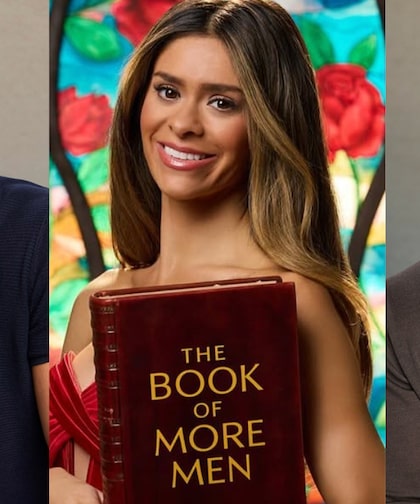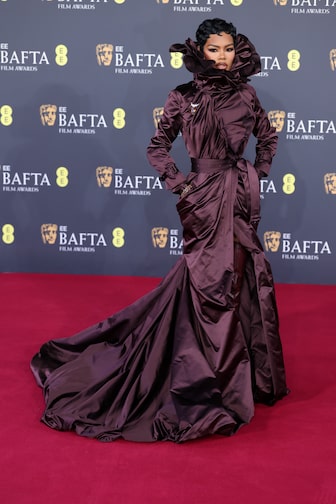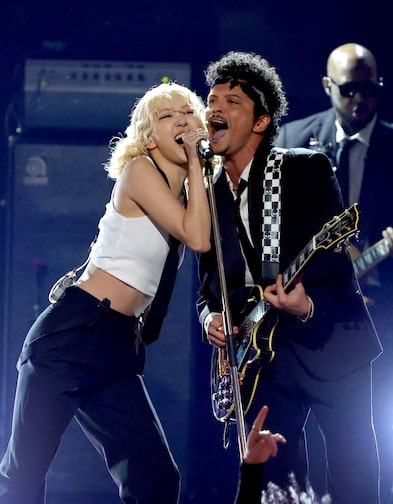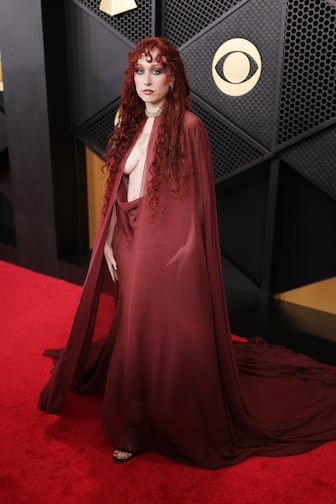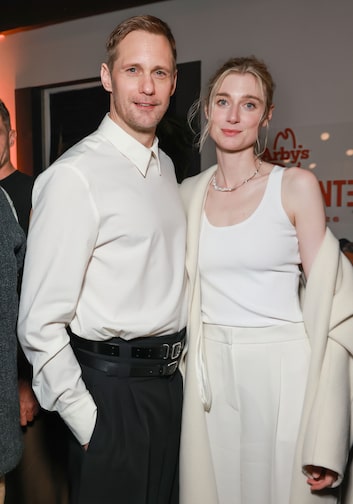Celebrity News February 27, 2025
Gene Hackman, Among the 20th Century's Most Revered Actors, Dies at 95
 Getty Images
Getty Images
Gene Hackman, a two-time Oscar winner who had been widely considered among the best actors of all time, was found dead at 95 early Thursday at his Santa Fe, New Mexico, compound. His wife of more than 30 years, Betsy Arakawa, and one dog were also deceased on the scene. Authorities initially discounted foul play, but TMZ now reports cops are calling the deaths "suspicious."
 Splash News
Splash News
Final Pic of Gene Hackman & Wife Betsy Taken Months Before They Were Found Dead
View StoryWhile authorities assess what could have happened — his family suspects carbon monoxide poisoning — Hollywood and moviegoers are remembering a performer who contributed his talents to some of the most iconic films ever made.
 Getty Images
Getty Images
Echoing the sentiments of many, actor Josh Brolin posted on Instagram, "I am crushed by the sudden deaths of Gene Hackman and his wife Betsy Arakawa (and their dog). Crushed. He was always one of my favorites. Not many who beat to their own drums like he did."
The actor was born January 30, 1930, in San Bernardino, California, but moved around with his family a lot, eventually growing up in Danville, Illinois. His father left the family early on, and while it disappointed Hackman, he later told Larry King he loved him "right till the end."

At just 16, he lied about his age in order to serve in the Marines, which he did for more than four years in the 1940s.
"I was not a good Marine," he said, laughing, in a Larry King interview in 2004. "I made corporal once and was promptly busted. I just have always had trouble with authority."
Hackman began as a stage actor in 1956, working alongside Dustin Hoffman at the Pasadena Playhouse, where both were considered long shots to ever achieving stardom. He lived with Hoffman and also longtime friend Robert Duvall in NYC, where he began to get some breaks, notably in the off-Broadway play "The Saintliness of Margery Kempe" (1959) and on Broadway in "Children from Their Games" (1963) and "Any Wednesday" (1964) opposite Sandy Dennis.
Hoffman said in a statement following Hackman's passing, “I met Gene in acting school, at the Pasadena Playhouse, when he was 27 and I was 19. We used to play congas together on the roof, trying to be like our hero Marlon Brando. And Gene was like Brando, in that he brought something unprecedented to our craft, something people didn’t immediately understand as genius. He was expelled from our school after three months for ‘not having talent.’ It was the first time they ever did that. He was that good. Powerful, subtle, brilliant. A giant among actors. I miss him already.”
Hackman would return to Broadway three more times, but in the meantime began a film and TV career.
Following an uncredited bit part in "Mad Dog Coll" (1961), he made a proper film debut in "Lilith" (1964) after several TV appearances, including on "Tallahassee 7000" (1961), "Naked City" (1963), "The Defenders" (1961 & 1963) and "Route 66" (1963).
Other early films were "Hawaii" (1966), "First to Fight" (1967), "A Covenant with Death" (1967), and "Banning" (1967).
In 1967, the release of "Bonnie and Clyde," starring Warren Beatty and Faye Dunaway, marked a turning point for Hackman, who played Buck Barrow and received his first Oscar nomination, for Best Supporting Actor.
He was fired from "The Graduate" (1967), in which he was to have played Mr. Robinson, when director Mike Nichols decided he was too young. He also, possibly apocryphally, was said to have been tempted to accept a series-regular role that, in retrospect, sounds like a good call — Mike Brady on "The Brady Bunch."
Along with continuing on TV with guest spots on series including "I Spy" (1968), he appeared in the films "The Split" (1968), "Riot" (1969), "Marooned" (1969), and "Downhill Racer" (1969) with Robert Redford.
Hackman became one of the hottest actors of the 1970s with a string of critical and commercial successes, some of which have endured for 50 years as outstanding achievements in the medium, starting with a second Oscar nomination for the drama "I Never Sang for My Father" (1970).
His next great hit was "The French Connection" (1971), no. 8 on the list of highest-grossing films of that year. In the gritty thriller, Hackman played Popeye Doyle, an NYPD detective after a rich French heroin smuggler. The movie is known for offering perhaps the best car-chase scene in film history. Hackman won Best Actor for his performance.
Hackman anchored the star-studded "The Poseidon Adventure" (1972) as Rev. Frank Scott, a self-sacrificing leader of a band of survivors struggling to escape an overturned luxury liner on the high seas before it sinks. The movie is judged to be the best of producer Irwin Allen's nail-biting disaster flicks, and has achieved a considerable cult following since is release. It was no. 2 at the box office for the year, after only "The Godfather."
Hackman had been the last surviving adult actor from the main cast of "The Poseidon Adventure."
He next starred in Jerry Schatzberg's admired "Scarecrow" (1973) — Hackman has long identified this as his favorite performance — and in Francis Ford Coppola's "The Conversation" (1973).
In 1974, Hackman tried his hand at comedy in Mel Brooks' "Young Frankenstein," playing a blind man greeting the monster. It was a broadly comedic role and total departure.
Brooks told Variety of Hackman, "I was privileged to know Gene Hackman because he played tennis with another Gene — Gene Wilder. And that Gene told him about a little role called the Blind Hermit in our movie... He said, 'Do you think Mel would let me play it? I’ve always wanted to do a comedy.' Needless to say, I was over the moon and he was perfect."
His next features were quieter, including "Night Moves" (1975), a "French Connection" sequel (1975), and the Liza Minnelli co-starrer "Lucky Lady" (1975), directed by Stanley Donen.
 Getty Images
Getty Images
Hackman is still remembered as one of the best to ever embody Lex Luthor, which he did in "Superman" (1978) — the biggest hit of 1979 — "Superman II" (1980), and "Superman IV: The Quest for Peace" (1987).
 Instagram
Instagram
He worked with Barbra Streisand in the dud "All Night Long" (1981) and was re-teamed with Warren Beatty in Beatty's directorial magnum opus "Reds" (1981).
Saying he loved working with Beatty, he nonetheless laughed with King while recalling the experience of working with the perfectionist, noting, "Fifty takes is tough."
In the '80s, Hackman played a number of strong, silent types in films including "Uncommon Valor" (1983), "Twice in a Lifetime" (1985) with Ann-Margret; Arthur Penn's "Power" (1986); "Hoosiers" (1986), an all-time great sports drama; and "No Way Out" (1987), which was Kevin Costner's star-making turn. He starred in an incredible nine features in a period of three years in the '80s, including for Woody Allen in "Another Woman" (1988).
His work in "Mississippi Burning" (1988), as an FBI agent investigating the disappearance of three civil rights workers in the Deep South in the '60s, earned him his second Best Actor Academy Award nomination.
In spite of his supremacy as a dramatic actor, he gamely starred with Dan Aykroyd in the goofball comedy "Loose Cannons" (1990) and appeared in "Postcards from the Edge" (1990), a comedy starring Shirley MacLaine and Meryl Streep based on Carrie Fisher's Hollywood roman à clef.
Hackman Oscared a second time for Best Picture "Unforgiven" (1992), in which he played the supporting role of a sadistic sheriff for director Clint Eastwood.
 Getty Images
Getty Images
In 1992, Hackman gave his last Broadway performance, in the play "Death and the Maiden," directed by Mike Nichols and starring Hackman, Richard Dreyfuss and Glenn Close. Close remembered "wonderful, wonderful" Hackman on Instagram Thursday, saying, "He was incredible to work with... I was in heaven. It was a very, very difficult play. We worked hard to make it work... It was difficult. We would all come offstage at intermission and run up to the costume room, have tea, and talk about sex and politics. But I remember one time — we usually got a standing ovation, after the curtain calls, we came up and Gene said, 'Three more... months that is!'"
At that point, Hackman was a triple-A-lister, yet had fewer than two dozen more performances on the horizon, among them with Tom Cruise in "The Firm" (1993); "Wyatt Earp" (1994); "The Quick and the Dead" (1995); and "Crimson Tide" (1995).
He excelled in back-to-back comedies "Get Shorty" (1995) with John Travolta and, for Mike Nichols — who had passed on him for "The Graduate" — as a right-wing senator in "The Birdcage" (1996). In the latter, the lifelong Democrat played a Republican who is dismayed to learn his daughter is marrying the son of two gay men, played by Robin Williams and Nathan Lane. Hackman donned hysterically unconvincing drag for the film, which is one of the Top 5 most successful LGBTQ+ films of all time.
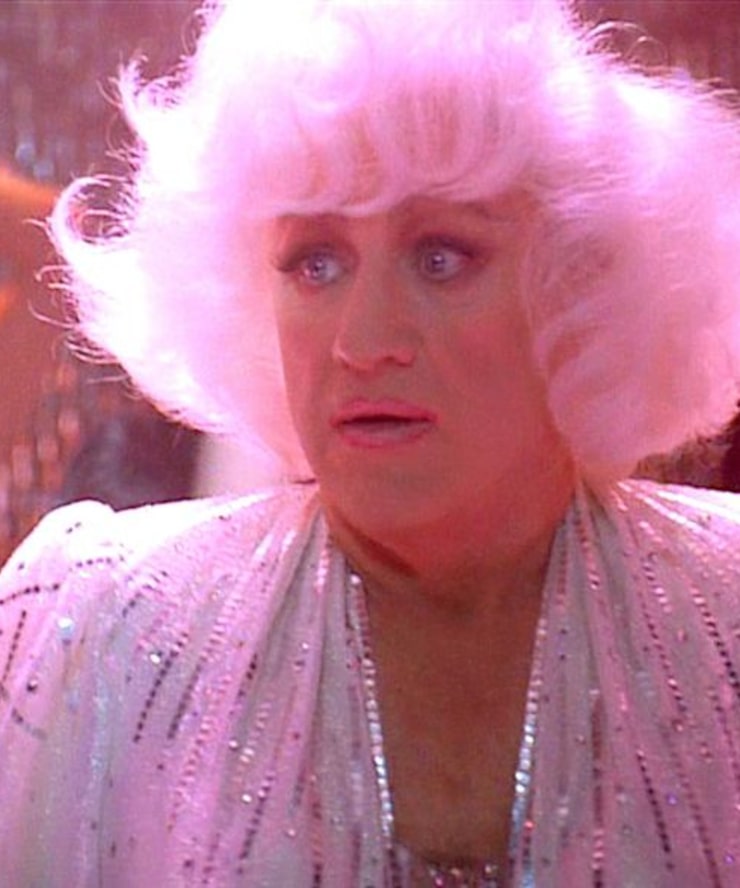 MGM/UA
MGM/UA
Other late-career highlights include "The Chamber" (1996), "Absolute Power" (1997), "Twilight" (1998), a voice in "Antz" (1998), "Enemy of the State" (1998), "The Replacements" (2000), "Heartbreakers" (2001), and "Heist" (2001).
He closed his career with an interestingly diverse quartet of films — Wes Anderson's out-there "The Royal Tenenbaums" (2001); tough-guy actioner "Behind Enemy Lines" (2001); "Runaway Jury" (2003) with his friend Dustin Hoffman; and the critically panned comedy "Welcome to Mooseport" (2004) with Ray Romano.
Hackman did not confirm he had retired immediately, though in 2004 he told Larry King, "It's probably all over."
In 2009, he told Empire he quit to preserve his health.
“The straw that broke the camel’s back was actually a stress test that I took in New York,” Hackman told the outlet. "The doctor advised me that my heart wasn’t in the kind of shape that I should be putting it under any stress."
He described his retirement as consisting of watching DVDs with his wife, painting, and fishing.
Hackman also took up writing, publishing historical-adventure novels with his friend Daniel Lenihan, a neighbor.
“It’s very relaxing for me,” Hackman told Empire. “I don’t picture myself as a great writer, but I really enjoy the process... [I]t's a different kind of stress. It’s one you can kind of manage, because you’re sitting there by yourself, as opposed to having ninety people sitting around waiting for you to entertain them!”
 Getty Images
Getty Images
Gene Hackman, His Wife & One of Their Dogs Found Dead in New Mexico Home
View StoryHackman, along with his five Oscar nominations and two wins, was a five-time BAFTA nominee and two-time winner; won three competitive Golden Globes and received one Cecile B. DeMille Award; won Best Actor three times from the National Board of Review; and won a SAG as part of the cast of "The Birdcage."
 Splash News
Splash News
Hackman was married 30 years (1956-1986) to Faye Maltese, with whom he had one son and two daughters.
He remarried to classical pianist Arakawa, 30 years his junior, in 1991.


